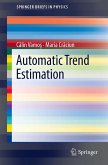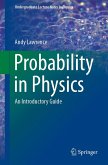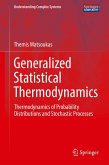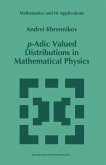This book is Volume 2 of a two-volume set describing two main classes of non-equilibrium phase-transitions. This volume covers dynamical scaling in far-from-equilibrium relaxation behaviour and ageing. Motivated initially by experimental results, dynamical scaling has now been recognised as a cornerstone in the modern understanding of far from equilibrium relaxation. Dynamical scaling is systematically introduced, starting from coarsening phenomena, and existing analytical results and numerical estimates of universal non-equilibrium exponents and scaling functions are reviewed in detail. Ageing phenomena in glasses, as well as in simple magnets, are paradigmatic examples of non-equilibrium dynamical scaling, but may also be found in irreversible systems of chemical reactions. Recent theoretical work sought to understand if dynamical scaling may be just a part of a larger symmetry, called local scale-invariance. Initially, this was motivated by certain analogies with the conformal invariance of equilibrium phase transitions; this work has recently reached a degree of completion and the research is presented, systematically and in detail, in book form for the first time. Numerous worked-out exercises are included. Quite similar ideas apply to the phase transitions of equilibrium systems with competing interactions and interesting physical realisations, for example in Lifshitz points.
Dieser Download kann aus rechtlichen Gründen nur mit Rechnungsadresse in A, B, BG, CY, CZ, D, DK, EW, E, FIN, F, GR, HR, H, IRL, I, LT, L, LR, M, NL, PL, P, R, S, SLO, SK ausgeliefert werden.
From the reviews:
"This book is the second of a two-volume work on non-equilibrium phase transitions ... . a well written and valuable introduction to these problems, for mathematicians as well as for physicists. ... The book finishes with several appendices, where the reader can be reminded of useful physical and mathematical results ... a large section where the almost one hundred problems proposed throughout the book are fully worked out, and a huge and very useful reference list of more than seven hundred fifty items." (Fernando Pestana da Costa, Mathematical Reviews, Issue 2011 j)
"This book is the second of a two-volume work on non-equilibrium phase transitions ... . a well written and valuable introduction to these problems, for mathematicians as well as for physicists. ... The book finishes with several appendices, where the reader can be reminded of useful physical and mathematical results ... a large section where the almost one hundred problems proposed throughout the book are fully worked out, and a huge and very useful reference list of more than seven hundred fifty items." (Fernando Pestana da Costa, Mathematical Reviews, Issue 2011 j)









